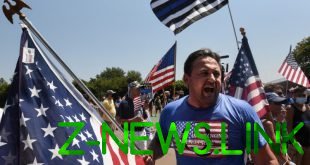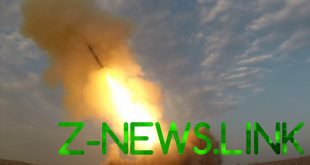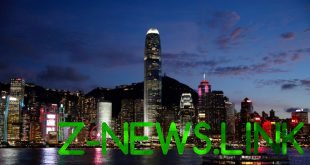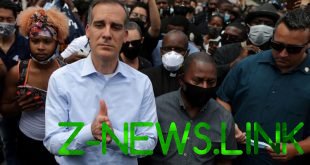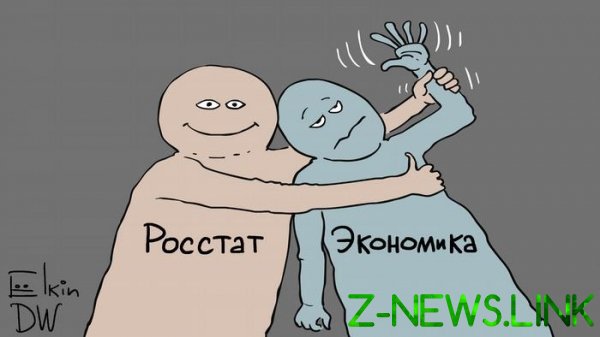
A former adviser to the Russian President on the economy in an interview with DW brings economic results of 20-year rule of Putin and explains why Russia did not become a country with an advanced economy.
31 December 2019 marks the 20th anniversary since after the sudden resignation of Russian President Boris Yeltsin, the country was headed by Vladimir Putin. Since it was four times elected President (with a break of four years, when Putin was Prime Minister, having “castling” with Dmitry Medvedev).
Senior fellow at the Cato Institute in Washington, Andrei Illarionov in 2000-2005 was an economic adviser to Putin and his authorized representative (Sherpa) in the “big eight”. In an interview with DW, he summed up the main economic result of a 20-year rule of Putin, explained the reasons why the Russian economy has failed to fully justify its hopes, and told how and why was a missed opportunity for sustainable high rates of economic growth.
DW: Andrey, how would you characterize the main economic result of a 20-year rule of Vladimir Putin?
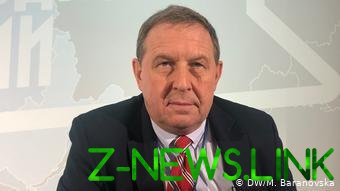
Andrei Illarionov
Andrei Illarionov: it is Important to note that these 20 years are divided into two unequal parts. The main result of the last 11 and a half years of Vladimir Putin’s stay in power is economic stagnation. The first part, a shorter one, from 2000 until July 2008, is a period of rapid economic growth. The Russian economy has grown annually by a rate of seven percent or more. As a result, over ten years – since 1998 – it has doubled in size, doubled GDP per capita, more than twice as much private consumption per capita. By any international standards, these are simply brilliant performance is what economists call economic boom. It ended in July 2008.
From July 2008 to December 2019, the Russian economy has cumulative grown approximately on 6%. Every year it grew by about 0.4-0.5 percent. And this stagnation is even worse than the one that was in the days of Brezhnev. Over the last eight years of Brezhnev in power, the Soviet economy grew by 17%. Its annual growth amounted to about 2.3 to 2.4%. In other words, Putin’s stagnation in the last 11 years, five to six times worse than Brezhnev.
– Powerful economic growth 2000-2008in no small measure contributed to the price of oil on the world market. In 2008, the year they fell, the Russian economy experienced a sharp downturn, and to recover her since then can not. Was it right to Putin’s decision to bet on the raw model of the economy, or it was necessary actively to diversify?
– Careful economic analysis shows that the impact of energy prices on economic growth is not so obvious. In 2000, Russia’s GDP increased by 10%. The price of oil at that time was less than $ 20 per barrel. Until 2005, the Russian economy grew annually by 7%, and the price of oil exceeded $ 40 per barrel. Now it is 60-70 dollars, and the annual GDP growth in this case is 0,4 – 0,5%. The fact that the oil price has a limited impact on economic growth, is confirmed by the comparisons with the state of the economy of the countries – exporters of oil. For example, in Kazakhstan for a long time, the annual GDP growth rate was 8-9%, in Venezuela the economy fell annually by 15-20%, and Russia was in a state of stagnation – and this despite the single price of oil on the world market.
As to the necessity of development of other sectors of the economy – the Russian economy is quite diversified. In total GDP share of the total fuel and energy complex as oil and gas, and even coal – to date, does not exceed 25%. We have manufacturing industry, and a fairly well developed service sector, and quite successfully developing agriculture. So for a country with such reserves of energy resources the Russian economy is more or less balanced.
– But if the Russian economy has no structural issues, why is she in eleven and a half years and failed to recover?
– If you break these eleven and a half years for shorter periods, you can see that the behavior of the economy at that time was heterogeneous. Some periods of growth alternated with recessions. But since 2014, the beginning of the Russian aggression against Ukraine, the time of the occupation and annexation of the Crimea – became absolutely clear that there was stagnation from which we will not quit. And the main reason is not so much external sanction as internal sanctions that the political regime of Vladimir Putin has imposed on the Russian economy. This constant persecution of Russian and foreign entrepreneurs, and the violation of property rights and the seizure of property and land in prison for many businesses. This is a common mode of political terror that exists in the country in recent times.
– And how serious the damage from external sanctions against Russia?
Most serious study of the effect of sanctions on economic growth in Russia conducted by the IMF. He has prepared quite a detailed analysis, according to which introduced sanctions against Russia cut economic growth by about 1.5 percentage points annually. Thus, if the average annual rate of economic growth in Russia are, say, half a percentage point per annum, without these sanctions, they would be about 2%. But this is not the 7-8% that the Russian economy was growing in the first eight years of Putin’s rule. That is, the Western sanctions “have eaten” half a percentage point of economic growth. But 5-6 six percentage points “ate” destructive economic policies pursued by the authorities.
In the beginning of zero years, Putin was surrounded by a team of “reformers”, which was, for example, Alexei Kudrin, or German Gref, speaking for the liberalization of the economy and the minimization of participation of the state. How is it that Putin turned from the path of liberal reforms?
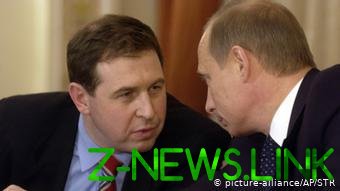
Andrey Illarionov and Vladimir Putin, April 9, 2004
– The reason, above all, in the evolution of his worldview. And she was observed not only in relation to economic policy, but also, for example, to the political positioning of the country. In 2000-2001, Putin has repeatedly talked about the necessity of joining of Russia to NATO. He spoke about this publicly was led about negotiating with foreign colleagues, and he thought it was one of the Central objectives of his administration. And now NATO is the main enemy. And this change of position occurred not even 20 years – his Munich speech he delivered in 2007.
– Hthat contributed to this transformation? Were there any external factors or a change in the thinking of Putin took place without outside influence?
– A turning point, from my point of view, was 2003, and the most important event of the trigger that changed his ideas about the world – became the beginning of the war in Iraq. It seems to me, greatly affected his mind, in his worldview, and so began a dramatic turnaround from the early Putin to Putin, whom we now all know.
Putin vigorously rebelled against the war, tried to persuade George Bush not to do it. I was present at least during some of those conversations, I saw how it happened. He was absolutely sincere and consistent. He believed that it would lead to disaster in Iraq and the middle East, and globally. And after it happened he made some important conclusions. He took the decision that international law can be broken. And decided that if the United States is in Iraq, it means that it is possible in other places. Was to follow this rule. The first place where he did it, was Russian, and the first victim of the new policy was Mikhail Khodorkovsky and YUKOS. The full transition happened not in one day or even one year, but in 2003 was the first step.
– How Putin was initially receptive to ideas for changes in the economy? If he listened to the opinions of those around him advisors, was open to dialogue or thought of one yourself?
– I will tell you a story. In 2000, on the eve of 8 March, Vladimir Putin went to Ivanovo, a city of weavers, to congratulate the Russian women. And said them a PEP talk about economic freedom. Because at that time the only person who used this term were me, colleagues from the group of speech writers of the President’s administration contacted me to understand what this concept means, how it should be treated and how often it is necessary to insert the term in the speeches of Vladimir Putin. So almost twenty years ago, Vladimir Putin perceived these ideas are great, took them on Board, and very many of the actions that he did in the beginning, do meet the requirements of economic freedom.
– What implies the notion of “economic freedom”?
– It implies the reduction of state intervention in economic life, tax cuts, deregulirovanie, enforcement of property rights, respect for the rule of law, protection of entrepreneurs, private property, ensuring the most favorable conditions for Russian and foreign businessmen working in Russia. The economic boom in Russia in the first eight years (of Putin’s rule. – Ed.) is not accidental. He was provided with the implementation of policies aimed at enhancing economic freedom. As soon as Vladimir Putin has ceased on it to navigate the economic growth stopped and went into a state of stagnation.
– If you now proposed to take the post of economic Advisor to the President and would you agree, what would you do first in order to give the Russian economy a new momentum for sustainable development?
– First, if such a proposal came, I would have said “no”. But let’s say that I were in the position not of the adviser, and, say, the Director was in the “Literary newspaper” in the Soviet time this category “If the Director was me.” So, the first thing I would do, I would have dismissed the current Russian government and President. I would start political reform on the creation in Russia absolutely other political and legal institutions, allowing you to build a free and open government and economy. The citizens themselves would decide who they want to see as President, and which MPs they would like to have. And these people, supported by companies, would determine which way to go (Russia. – Ed.), and neither I nor any other councillor. It is a matter of society, not some individual man, as wonderful as it was.
© 2020, paradox. All rights reserved.


